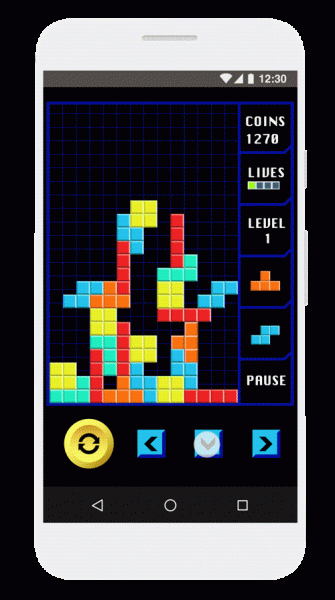 APPS
APPS
 APPS
APPS
 APPS
APPS
As ever more online activity continues to move to mobile devices, so do the ads — especially ads that aim to get people to install apps and games and buy goods inside them. Today, ahead of next week’s big annual Game Developers Conference in San Francisco, Google is announcing a number of new mobile ad features aimed specifically at games.
“Acquiring users for games is really competitive,” Sissie Hsiao, vice president of Google’s mobile app advertising division, said in a press briefing. So Google, which has been calling itself an “AI first” company, lately, said it’s using its machine learning algorithms to provide better targeting for advertisers and helping developers earn more from their games.
Momentum continues to grow for app ads, according to Hsiao. She said Google has driven more than 10 billion app installs from its app ads to date, and ad requests have doubled each year since 2015 in its DoubleClick web and AdMob mobile ad serving systems.
But Google faces a formidable competitor in Facebook Inc., which doesn’t reveal its app ad numbers but is believed to be in the lead on mobile app ads overall and has been for years. Some 75 percent of apps are running campaigns on Facebook, to 45 percent for Google, according to a recent study by AppsFlyer.
Despite the deficit, Google is gaining on the social network, thanks to its Universal App Campaigns that can run across devices using its Android mobile software as well as Apple Inc.’s iOS. They’ve boosted Google’s app ad share by 40 percent in the past year, according to AppsFlyer.
Still, it’s clear that Google intends to make an even bigger splash, especially since searches can be a little more cumbersome on mobile, so other ways to sell ads is critical for the company. So today, it’s rolling out some new app ad variations and features intended to attract developers of games, still the dominant class of mobile apps.
For one, Google will begin a beta test of video ads in the next few months in Google’s Play store to provide gaming companies a way to show people how a game works. “Video ads are really key to showcasing what a game is about,” Hsiao said. Video ads have already been running through DoubleClick and AdMob, but the Play apps store gets a billion visitors monthly worldwide.
Google also is announcing two new “rewarded ad experiences” that offer in-game goods such as power-ups or extra lives in return for a player watching a video. Already, more than 45 percent of AdMob’s top 1,000 gaming partners by revenue use the ads to make money from their games. Chinese game company Avid.ly, for instance, used them in its Bingo Party game (pictured above) and saw 40 percent growth in revenue from ads and in-app purchases and 20 percent longer sessions.
In the next quarter, Google plans to double down by offering “playable ads” (pictured below) that allow people to try the game inside the ad and “multiple-option video ads” that give people a choice of which ad to watch.

Google also is putting out a test of a new way called “open bidding” to run ads on AdMob, allowing ad networks to serve ads in apps in a single, unified auction. That should provide more competition and higher prices for game makers, while also giving them a simpler dashboard and payment process. “Essentially it’s real-time pricing,” Hsiao said.
The system is already live with three networks, Smaato, Index Exchange and OpenX, but Google will add more in the next few months, including Vungle and AdColony.
Finally, Google is offering a targeting method it has offered with other ad types called “similar audiences” with Universal App Campaigns as well. That will enable game makers launching a new title to find more players like the ones playing a previous game.
Support our open free content by sharing and engaging with our content and community.
Where Technology Leaders Connect, Share Intelligence & Create Opportunities
SiliconANGLE Media is a recognized leader in digital media innovation serving innovative audiences and brands, bringing together cutting-edge technology, influential content, strategic insights and real-time audience engagement. As the parent company of SiliconANGLE, theCUBE Network, theCUBE Research, CUBE365, theCUBE AI and theCUBE SuperStudios — such as those established in Silicon Valley and the New York Stock Exchange (NYSE) — SiliconANGLE Media operates at the intersection of media, technology, and AI. .
Founded by tech visionaries John Furrier and Dave Vellante, SiliconANGLE Media has built a powerful ecosystem of industry-leading digital media brands, with a reach of 15+ million elite tech professionals. The company’s new, proprietary theCUBE AI Video cloud is breaking ground in audience interaction, leveraging theCUBEai.com neural network to help technology companies make data-driven decisions and stay at the forefront of industry conversations.